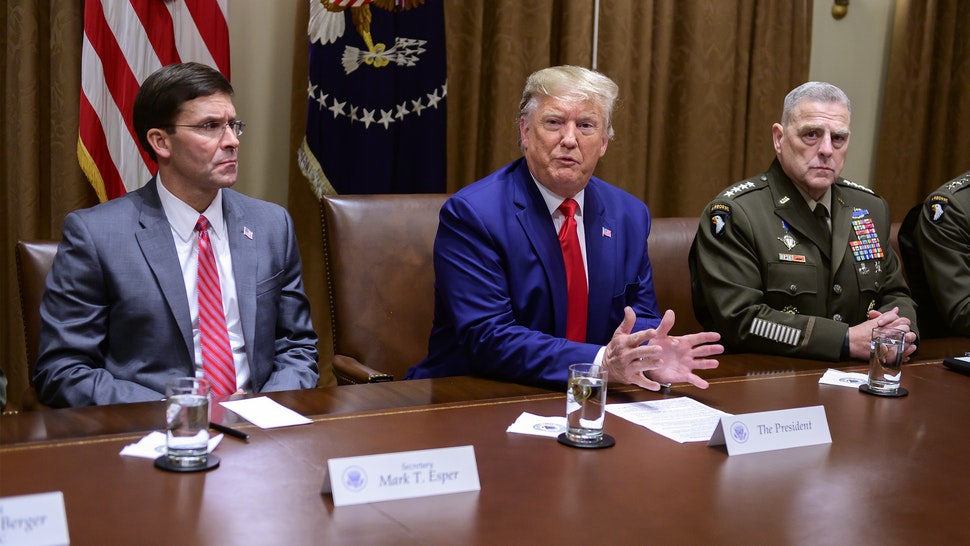
WASHINGTON: President Donal Trump and Defense Secretary Mark Esper seem to be getting very different briefing books these days.
Asked during an interview today what he thought caused a massive explosion in Beirut that killed over 100 people and wounded 5,000 more, Esper said, “most believe it was an accident, as reported. Beyond that, I have nothing further to report on that. It’s obviously a tragedy.”
Trump said Tuesday evening — after saying he had just been briefed by “our great generals” who work with Esper every day — “they seem to think it was an attack. It was a bomb of some kind.”
For its part, the Lebanese government and Esper seem to be on the same page. They have said that more than 2,000 tons of ammonium nitrate stored at a port warehouse at the port exploded after a nearby fire spread and caused the catastrophic explosion, which reportedly registered 3.5 on the Richter Scale.
Esper and Trump’s conflicting accounts of what happened in Beirut come the week after they offered wildly divergent reasons for why the US was planning to pull 12,000 troops out of Germany.
Last week, Esper, Vice Chairman of the Joint Chiefs Gen. John Hyten, and the head of US forces in Europe, Gen. Todd Wolters, painstakingly walked reporters at the Pentagon through the reasons why the German pullout was a smart strategic move that would benefit the NATO alliance.
Within the hour, President Trump blew those explanations up by flatly stating the move was purely a punitive measure due to his anger over Germany’s refusal to spend more on its own defense.
“We don’t want to be the suckers anymore,” the president said at the White House. “So we’re reducing the force because they’re not paying their bills. It’s very simple, they’re delinquent.”
Just before Esper spoke today, Trump repeated the reason for the pullout during a FOX News interview.
“Germany has to pay…We’re not going to have 52,000 troops in Germany where they make a fortune off the troops. You know they built cities around our troops. We’ll let ourselves get rich first.”
There are currently 36,000 US forces stationed in Germany, not 52,000. The planned reduction would bring the total to 24,000.
Despite the president’s comments to the contrary, Esper continued to insist today that the relocation of those forces was guided by strategic assessments. “What we will end up doing is actually move forces further east,” he said. “In other words, following the trail of our newest members of the [NATO] alliance, we see putting more rotational forces into the Black Sea region, Romania, in particular,” along with troops in the Baltics and Poland.
The Polish government will pay the vast majority of the costs to base 5,500 US troops there in the coming years, but there are no public plans for any more American forces to head to Romania or the Baltics yet. Latvia has stated they’re ready to pay to house US forces, but talks between the government and the Trump administration are ongoing.
The back and forth raises questions over the state of communications between the White House and Pentagon, and if the president is ignoring the assessments and goals of the government he helps lead.

